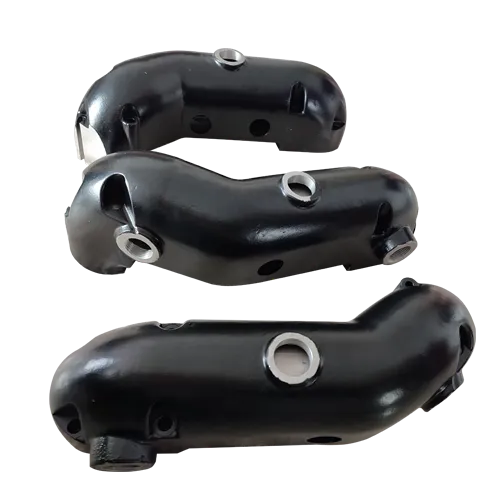Mobile:+86-311-808-126-83
Email:info@ydcastings.com
Ene . 09, 2025 11:22
Back to list
impeller
The impeller, an essential component in numerous industrial and commercial applications, plays a pivotal role in enhancing the efficiency and performance of machinery. This component, often overlooked by those not intimately familiar with mechanical systems, is critical for anyone looking to optimize the functionality of equipment ranging from small pumps to large turbines.
Industry experts would agree that engineering robust and efficient impellers is both an art and a science. Companies like Grundfos and Flowserve have established their reputations by producing high-quality impellers that meet stringent industry standards. These manufacturers incorporate advanced materials such as stainless steel, titanium, and composite polymers to enhance durability and efficiency. Such expertise is not easily acquired; it demands extensive research and development investment, alongside rigorous testing protocols to ensure reliability and performance. The authority of a company in producing superior impellers can often be gauged by their certification and adherence to global standards such as those established by the Hydraulic Institute and ISO 2858. Trustworthy manufacturers provide detailed documentation outlining the performance and characteristics of their impellers, allowing engineers to make educated decisions based on reliable data. Consumers, whether from large-scale industries or small business sectors, must evaluate their suppliers' credibility. Testimonials, case studies, and historical performance data often provide insights into an impeller’s reliability. Furthermore, engaging with experienced professionals and utilizing simulation tools can aid in visualizing flow scenarios, minimizing errors in selection and application. Ultimately, the journey of selecting the right impeller is a collaborative effort between manufacturers, engineers, and end-users. The synergy created by this partnership results in enhanced system performance, reduced operational costs, and increased machinery longevity. Professionals leveraging their expertise can transform the impeller from a simple rotor into the heart of a dynamic and efficient system, showcasing the true potential of this remarkable component.


Industry experts would agree that engineering robust and efficient impellers is both an art and a science. Companies like Grundfos and Flowserve have established their reputations by producing high-quality impellers that meet stringent industry standards. These manufacturers incorporate advanced materials such as stainless steel, titanium, and composite polymers to enhance durability and efficiency. Such expertise is not easily acquired; it demands extensive research and development investment, alongside rigorous testing protocols to ensure reliability and performance. The authority of a company in producing superior impellers can often be gauged by their certification and adherence to global standards such as those established by the Hydraulic Institute and ISO 2858. Trustworthy manufacturers provide detailed documentation outlining the performance and characteristics of their impellers, allowing engineers to make educated decisions based on reliable data. Consumers, whether from large-scale industries or small business sectors, must evaluate their suppliers' credibility. Testimonials, case studies, and historical performance data often provide insights into an impeller’s reliability. Furthermore, engaging with experienced professionals and utilizing simulation tools can aid in visualizing flow scenarios, minimizing errors in selection and application. Ultimately, the journey of selecting the right impeller is a collaborative effort between manufacturers, engineers, and end-users. The synergy created by this partnership results in enhanced system performance, reduced operational costs, and increased machinery longevity. Professionals leveraging their expertise can transform the impeller from a simple rotor into the heart of a dynamic and efficient system, showcasing the true potential of this remarkable component.
Latest news
-
Why Should You Invest in Superior Pump Castings for Your Equipment?NewsJun.09,2025
-
Unlock Performance Potential with Stainless Impellers and Aluminum End CapsNewsJun.09,2025
-
Revolutionize Your Machinery with Superior Cast Iron and Aluminum ComponentsNewsJun.09,2025
-
Revolutionize Fluid Dynamics with Premium Pump ComponentsNewsJun.09,2025
-
Optimizing Industrial Systems with Essential Valve ComponentsNewsJun.09,2025
-
Elevate Grid Efficiency with High-Precision Power CastingsNewsJun.09,2025
Related PRODUCTS











